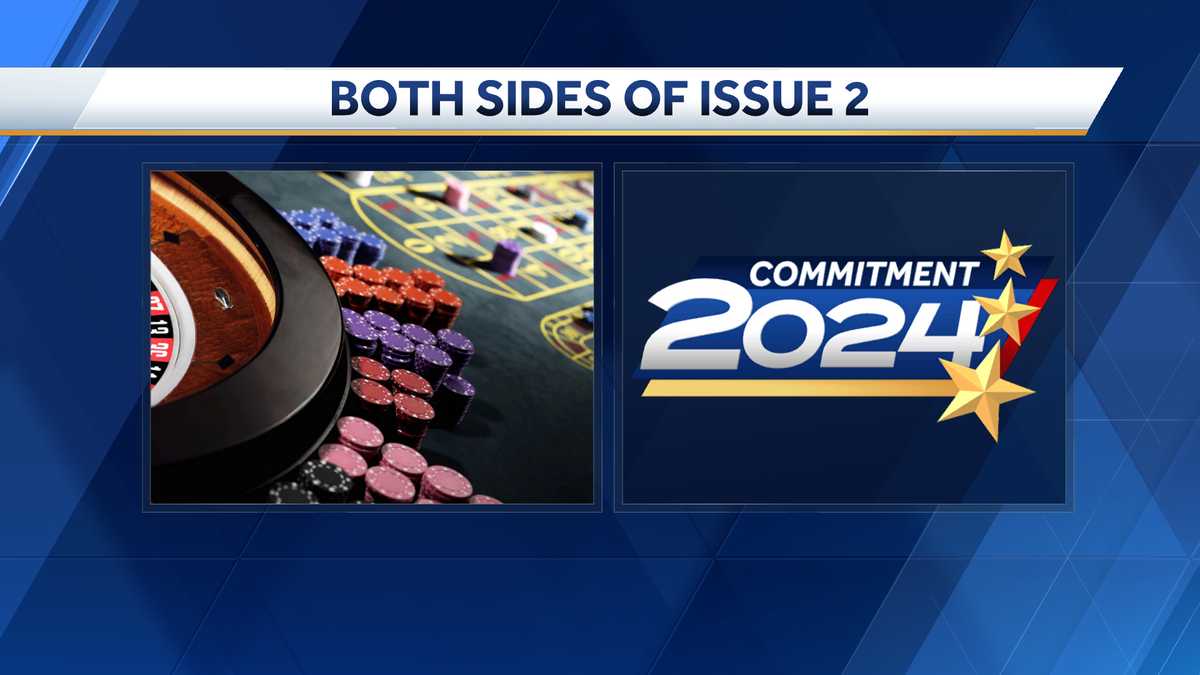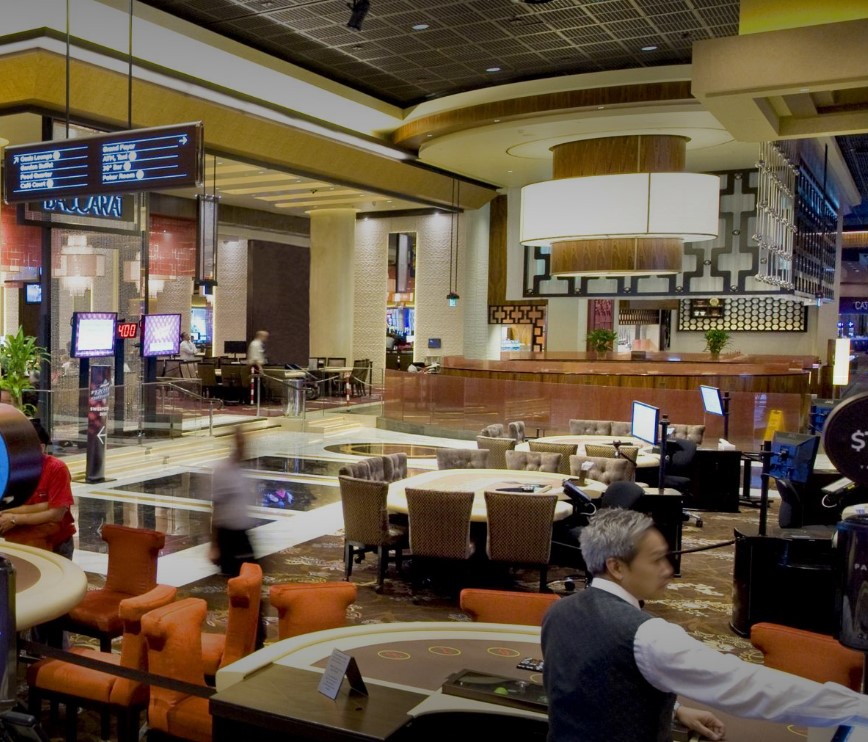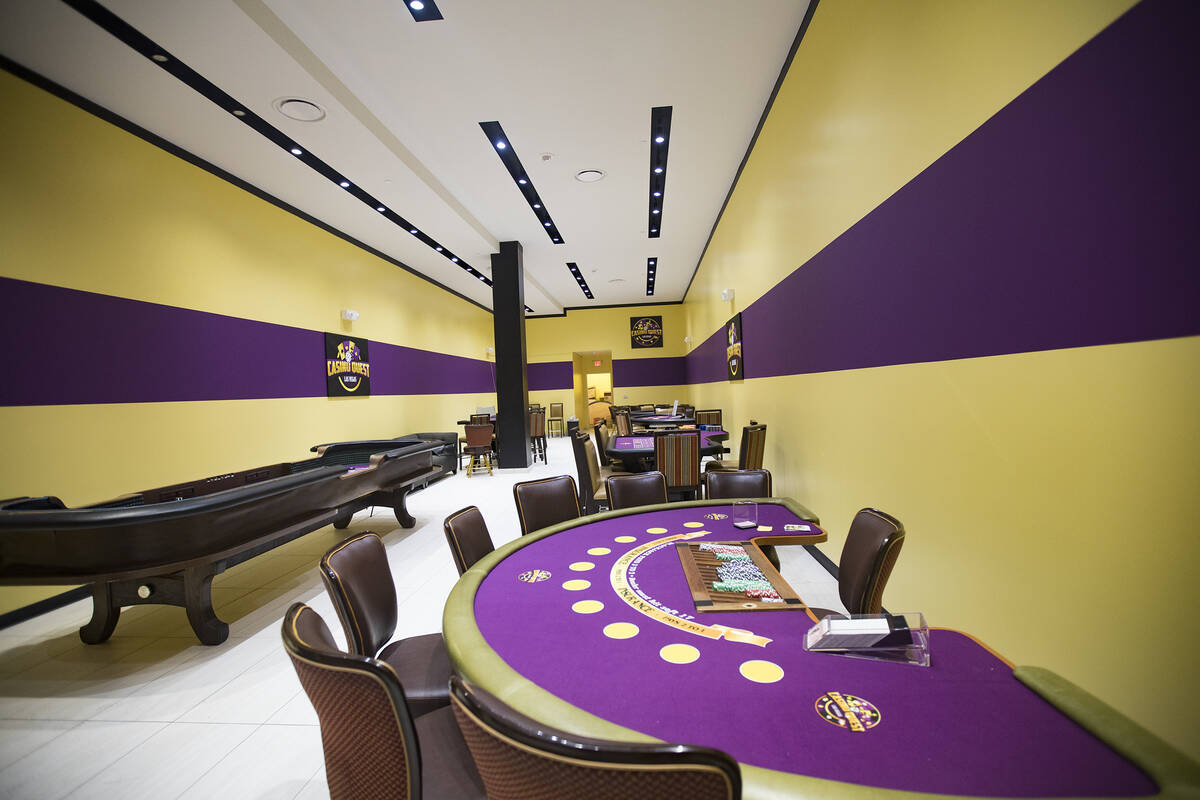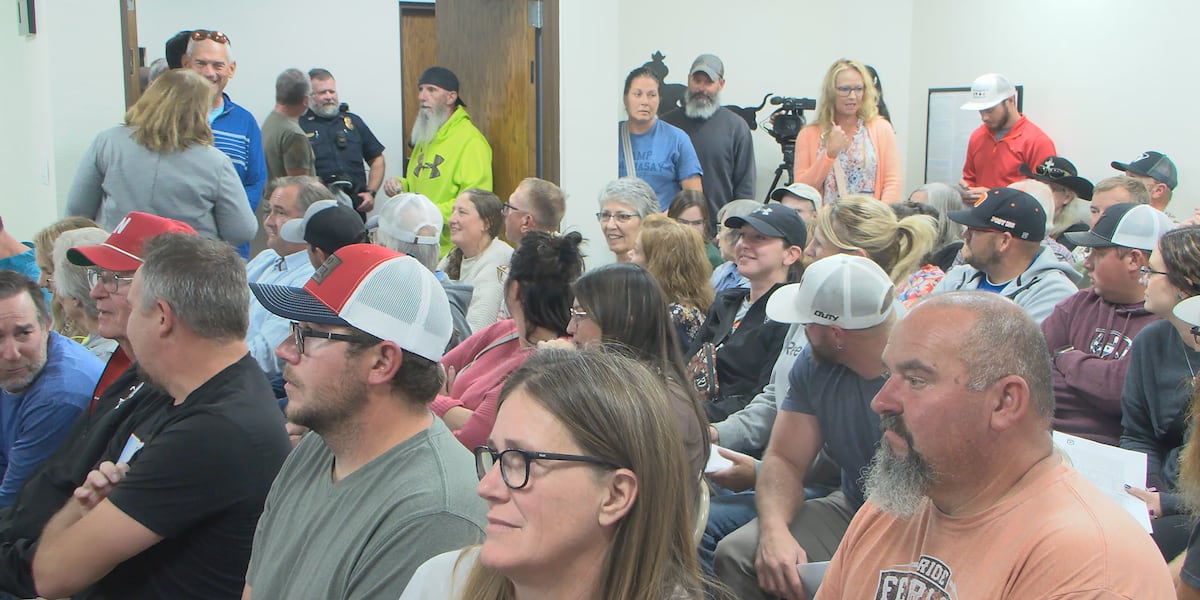Deposit $5, Get 250 Free Spins On October 16th

Select Your Country United Kingdom United States Canada Australia New Zealand Ireland India Netherlands Mexico Brazil Select Your State Alabama Alaska Arizona Arkansas California Colorado Connecticut Delaware Florida Georgia Hawaii Idaho Illinois Indiana Iowa Kansas Kentucky Louisiana Maine Maryland Massachusetts Michigan Minnesota Mississippi Missouri Montana Nebraska Nevada New Hampshire New Jersey New Mexico New York North Carolina North Dakota Ohio Oklahoma Oregon Pennsylvania Rhode Island South Carolina South Dakota Tennessee Texas Utah Vermont Virginia Washington Washington DC West Virginia Wisconsin Wyoming 🚀 Register for free and get personalized odds, expert picks and exclusive offers! Source link
Clippers and Pechanga Resort Casino strengthen ties with unique open practice event
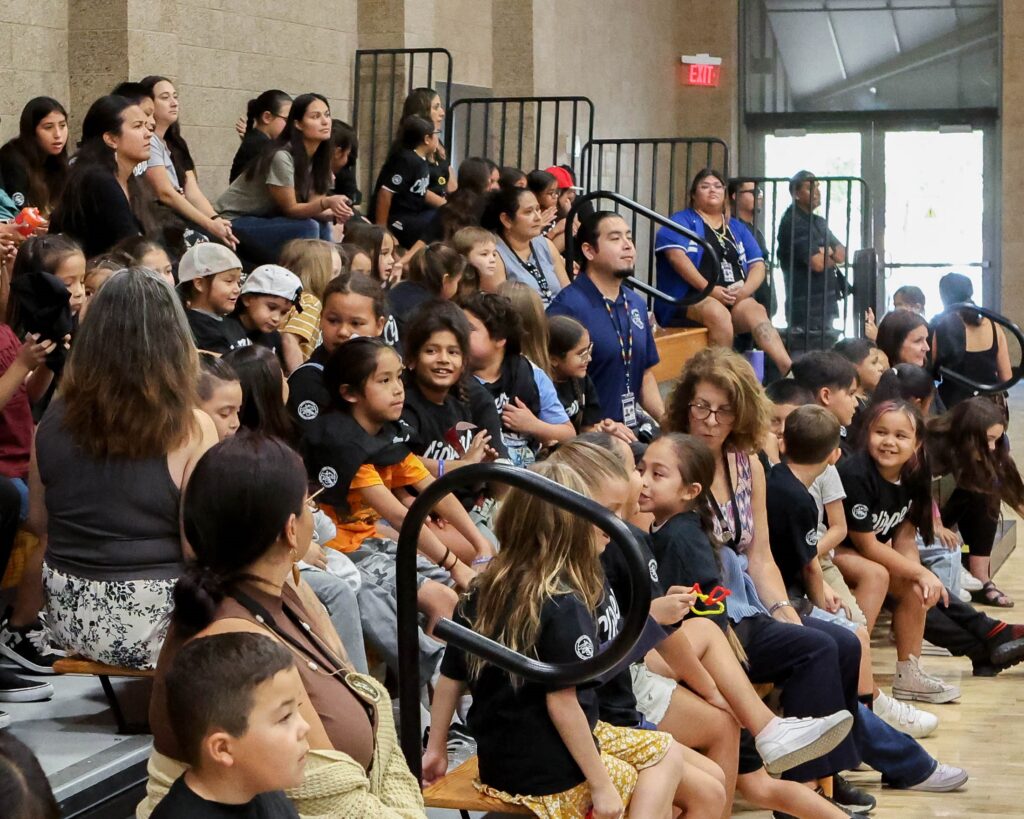
TEMECULA – In an exciting prelude to the 2024-25 NBA season, the Los Angeles Clippers hosted an open practice at the Pechanga Indian Reservation in Temecula on Wednesday, Oct. 8. This exclusive event was part of a growing partnership between the Clippers and Pechanga Resort Casino. Earlier this year, Pechanga Resort Casino emerged as a founding partner of the Clippers’ new arena, Intuit Dome, and became the team’s exclusive tribal casino. The Clippers’ practice, held just two weeks before the NBA season’s start, allowed fans to witness some of the world’s top basketball talents, including stars like Norman Powell, Nicolas Batum, and James Harden. The event was open to the public, offering a rare glimpse into the team’s preparation for the upcoming season, following their first-place finish in the Pacific Division and participation in the Western Conference playoffs last season. Pechanga Resort Casino, one of California’s premier gaming destinations, provides a unique setting for such high-profile events. Located 88 miles southeast of Los Angeles and less than 60 miles north of San Diego, the resort boasts a 200,000-square-foot gaming floor with 5,500 slot machines and over 150 table games. The resort complex also features a variety of dining options, live entertainment, and a luxurious 25,000-square-foot spa. Guests can enjoy its impressive swimming pool, which spans the size of five football fields, and unwind in its 1,100 rooms and guest suites. The Clippers’ new home, the Intuit Dome, is set to become a landmark in the sports and entertainment landscape, with a seating capacity of 18,000. For the first time since 1984, the Clippers will have a dedicated home arena. Previously, the team shared facilities with the Lakers and, before that, the Anaheim Ducks of the NHL. Ken Perez, President of Pechanga Development Corporation, expressed enthusiasm about the partnership, stating, “We are excited to partner and support the Clippers as they open their new home, Intuit Dome. This partnership expands the Pechanga brand and presence in Southern California sports and entertainment while making our communities better and stronger.” The collaboration between the Clippers and Pechanga Band of Indians extends beyond sports. In June, the two partners made a joint contribution of laptops and educational supplies to the Career Center at Ortega High School in Lake Elsinore, underscoring their commitment to supporting local communities in California. Los Angeles Clippers head coach Tyronn Lue fields questions from the media during an open practice shootaround at the Pechanga Recreation Center. Valley News/Andrez Imaging The synergy between Pechanga Resort Casino and the Clippers is not only about enhancing the game-day experience but also about fostering community growth and development. Fans visiting Pechanga can look forward to enjoying behind-the-scenes experiences with the Clippers, gaining insight into the team’s strategies and preparations. As the Clippers gear up for the new season in their state-of-the-art Intuit Dome, the partnership with Pechanga promises to bring exciting opportunities and memorable experiences for both fans and the local community. With Pechanga’s signage now prominently featured in the new arena, this alliance signifies a powerful step forward in the integration of sports and entertainment in Southern California. The Clippers’ first home preseason game was against the Mavericks on Monday, Oct. 14, and their first regular season game will be against Devin Booker and the Phoenix Suns on October 23rd. JP Raineri JP is an award-winning multimedia journalist, and head of the Sports Department for the Valley News. Over his time in the Temecula Valley, JP, a former Southwestern League head baseball coach, was also an on-air radio personality at Q103.3, KATY 101.3, Hot 103.9, and was a television host for the Outdoor Channel. When not covering local, or national sports, JP also serves as an Associate Baseball Scout with NSR. Source link
$14M monthly revenue generated over $2.5M in gaming taxes

BRISTOL, Va. — Adjusted gaming revenues at the Bristol Casino, future home of Hard Rock, continued tracking well ahead of 2023 levels, according to the latest report from the Virginia Lottery. The temporary casino, which will give way to the full Hard Rock Hotel & Casino in mid-November, reported gaming revenues of almost $14.1 million for September. For the first nine months of 2024, play at the Bristol Casino has generated more than $130 million in adjusted gaming revenues — wagers minus winnings. That is about 8% ahead of the $120.75 million reported during the first nine months of 2023, lottery figures show. September’s total is well above the $13.5 million monthly average recorded during the first nine months of 2023 but slightly below the casino’s $14.4 million monthly average recorded during the first nine months of this year. People are also reading… Nearly $11.7 million in AGR, or 83% of total gaming revenues, came from the casino’s slot machines. Through nine months, slots represent nearly $107 million, or 82% of total adjusted gaming revenue. The September total trails the facility’s $11.85 million monthly average for 2024. More than $2.4 million, or 17%, came from table game play during September. Table games have generated more than $23.5 million in AGR this year, for a monthly average of $2.61 million. The full 265,000-square-foot Hard Rock Hotel & Casino is scheduled to open Nov. 14, with a greatly expanded gaming space with about 1,500 slot machines and 50 table games. The entire complex is scheduled to open, including 303-room hotel, Hard Rock Cafe, Council Oak Steaks & Seafood, YOUYU Asian Dining, Constant Grind, and the Marketplace. The facility also will house a Rock Shop and a 2,000-plus seat Hard Rock Live. The new Bristol facility will become the Virginia’s first permanent casino with an attached hotel. The Rivers Casino Portsmouth opened last year but, at present, there is no hotel there. Statewide, Virginia’s three casinos reported more than $56.5 million in adjusted gaming revenue during September, including more than $43 million from slots — or 76% — and $13.5 million, or 24%, from table games. Rivers Casino Portsmouth reported more than $24.2 million in total AGR, including $17.85 million from slots — 75% — and $6.36 million from table games. The temporary Danville Casino reported $18.2 million in total gaming revenues, including $13.5 million from slots — 73% — and $4.76 million from table game play. The Bristol Casino generated more than $2.53 million in gaming tax revenues for the month, bringing its yearly total to more than $23 million. Nearly $845,500 of gaming tax revenue will go to the Regional Improvement Commission for distribution among 14 Southwest Virginia localities, the report shows. Rivers Casino Portsmouth generated $5.5 million in gaming tax revenue with nearly $1.7 million returned to the host city. The Caesars Virginia Danville facility generated $3.28 million in gaming taxes, with nearly $1.1 million returned to the host city. Overall, Virginia received almost $11.4 million in tax revenues, with $3.63 million returned to localities. Source link
Missouri ballot campaigns to legalize sports betting and new casino fueled by record spending | KCUR
It’s time to bet the over-under on how much will be spent this year on gambling ballot measures in Missouri. A good mark might be $60 million. Online bookies poured $32 million so far into the Amendment 2 campaign to legalize sports betting, and a casino company grumpy about the deal countered with $14 million to defeat it. The campaign for Amendment 5, to authorize a new casino at the Lake of the Ozarks, adds $9.4 million — bringing the total to more than $55 million. Winning for Missouri Education, the Amendment 2 campaign funded by DraftKings and FanDuel, has already set a record for the most money donated to a ballot measure campaign. The previous record was $31 million raised by supporters of a 2006 proposal to protect stem cell research. The initiative campaign began with vocal support from major professional sports teams but none have contributed any cash for the effort. “It is a large state, with a lot of TV markets, so it certainly takes resources to get your message out,” said Jack Cardetti, spokesman for the campaign. “But the most important thing is that you have a good message and a good initiative for voters.” Caesars Entertainment is the casino company that dislikes the proposal enough to spend big against it. Caesars employs 2,000 people in Missouri and has a branded online sports betting platform that competes with FanDuel and DraftKings. The proposal will mainly benefit the online platforms that have no significant presence in the state, said Brooke Foster, spokeswoman for Missourians Against the Deceptive Online Gambling Amendment. “Obviously they’re not opposed to sports betting,” she said of Caesars’ opposition to Amendment 2. “If it were written in a way that would actually benefit Missouri and Missourians in a more substantial way, it would be different.” The Amendment 5 campaign cost is being split between Bally’s Corp., which hopes to get the new license, and developer RIS Inc., which holds the land to build it. “For us, without any organized opposition that we’re aware of, it’s simply a matter of educating the voters about what our amendment does,” said Ed Rhode, a consultant working with the YesOn5 committee. “And what we’re seeing is the more educated they become about this issue, the more likely they are to support it.” Whether the broadcast spending on the gambling measure exceeds spending by statewide candidates would be an interesting side bet. So far, candidates for statewide office have spent $13.1 million on broadcast time, as tracked by The Independent, while the gambling campaigns have spent $13.7 million. All three major efforts focus their messages on one issue: education funding. Winning for Missouri Education promises that sports wagering will net more than $100 million for education programs over the first five years. “Legalizing sports betting will generate tens of millions of dollars every year for our classrooms, helping increase teacher pay,” one ad states. The Caesars-funded opposition challenges the sincerity of that promise, arguing write-offs and other carve-outs mean the result will be insignificant. It is “Lottery 2.0,” one ad states. “Teachers were told the lottery would raise a lot of money for schools, but that didn’t happen,” the ad begins. The casino at the Lake of the Ozarks is also selling educational benefits and does so by including language directing all the tax money to early childhood literacy programs in public schools. The $14.3 million estimate for revenue is “53% more funding for childhood literacy across Missouri, without raising taxes,” the campaign’s ad states. As the election nears, Winning for Missouri Education is adding a new message — sports betting is already occurring and Missouri isn’t getting any benefit. Hundreds of thousands of Missourians already have accounts with online platforms. All it takes to place a legal bet is cross into a state where it is legal — a list that includes every state bordering Missouri except Oklahoma. “Let’s fund education is the more effective argument,” said Terry Smith, a political science professor at Columbia College.“The argument that is less explicitly made, but I’ve heard from a lot of people, is that people are going to gamble on sports, and right now Kansas and states that we border are making all the money. Why shouldn’t we get our share?” Missouri Amendment 2 Rudi Keller / Missouri Independent The Isle of Capri casino in Boonville, owned by Caesars Entertainment, has contributed $4.7 million to the campaign to defeat Amendment 2, which would legalize sports wagering in Missouri. If voters legalize sports betting, the Missouri Gaming Commission could issue up to 14 licenses for online wagers. Six would go to the major sports teams, six would go to the casino operators and two would be reserved for online bookmakers. Each of the 13 casinos and each of the sports teams could also operate an in-person, retail sports betting operation on their properties. The push to legalize sports wagering in Missouri began after the U.S. Supreme Court struck down the federal law against wagering on sporting events in 2018. More than 35 states have legalized some form of the gambling since the court decision. In the bill that was the closest lawmakers ever got to a resolution of the issue, there were no licenses for independent online bookmakers like DraftKings or FanDuel. Instead, the online platforms would have had to provide products branded to a sports team or casino. The online platforms generate the cash. An economic study produced for Winning for Missouri Education estimates that $21.8 billion will be wagered during the first five years after legalization and more than 98% of the bets will be placed online. That same study pegs the net to the state over that period at $134 million. Revenue in the fifth year is estimated at $38.7 million, about $10 million more than the maximum annual revenue projected by the fiscal note for the ballot measure. Questioning the quality of those revenue estimates is a major thrust of the opposition campaign. The proposal before voters
Casino Stabber Enters Guilty Plea, Faces 20-Year Sentence
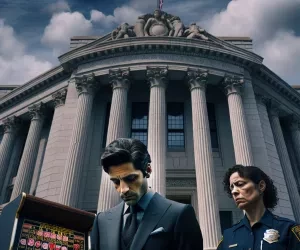
In a dramatic turn of events at a Las Vegas court on Tuesday, Shayne Sussman, the man accused of stabbing two employees at the Red Rock Casino Resort and Spa and attempting to injure a security guard, entered a guilty plea. Sussman, 25, admitted to three counts of attempted murder before District Judge Susan Johnson, pleading under the Alford Doctrine—a legal stance where he acknowledges sufficient evidence for a conviction but maintains his innocence. The plea stems from a harrowing incident on August 3. Prosecutors detailed how Sussman stabbed one casino worker multiple times in the back, lungs, collarbone, and neck. A supervisor also fell victim to his frenzied attack. The chaos didn’t end there; as Sussman targeted a security guard, he narrowly missed, his blade coming within mere inches of inflicting further harm. TRUSTED PARTNER ✅ Following the violent spree, Sussman fled deeper into the casino, even attempting to stage a quick escape by sitting outside a restaurant. When security guards drew near, Sussman lashed out again, resulting in a standoff where the guard was forced to shoot him in the abdomen. Sussman, along with the two injured casino employees, was rapidly transported to the University Medical Center (UMC) for emergency treatment. Miraculously, all three survived. Witnesses, including casino guests, vividly recounted the mayhem, describing how they hid under tables to avoid the violence. It was a terrifying scene, as confirmed by the Las Vegas Review-Journal. Adding another layer to the incident, Sussman was reportedly heavily intoxicated during the attack, having consumed excessive amounts of alcohol at a concert within the casino. Thomas Ericsson, Sussman’s defense attorney, pointed to his client’s extreme inebriation, stating Sussman “clearly loses control of his mind.” During the court proceedings, it was made clear that Sussman would not be eligible for probation, as per the agreement. Initially, Sussman was charged with an array of offenses: three counts of attempted murder with the use of a deadly weapon or tear gas, four counts of battery with a deadly weapon, and one count of battery causing substantial bodily harm. However, several of these charges were dropped after Sussman’s Alford plea. As the case awaits its final chapter, Sussman now faces up to 20 years in prison, with sentencing set for November 26. Source link
Is ChatGPT the next big innovation for the casino business industry? — Retail Technology Innovation Hub

Personalised Player Experiences Personalisation is always great for customers in any business. They feel like they are getting a tailor-made service as opposed to the “one-size-fits-all” common approach. ChatGPT can be great in personalising a player’s gaming experience such as analysing their gaming history, the games they prefer playing, and other behaviors. Using this data, ChatGPT will help online casinos create plenty of personalized playing opportunities for players. For example, a slot enthusiast may be suggested new slot titles to try out. Another example is a blackjack player being suggested to play a different variation. ChatGPT can also create tailor-made promotions for individual players based on the data that was analyzed. It takes personalisation to an entirely different level and in turn, leaves players satisfied knowing that an online casino understands their playing needs. A Game Changer In Development Game developers may use ChatGPT as a tool to assist them in gaming design and development. The intent here is to implement gaming experiences that are both interactive and immersive. Using AI technology along with its natural language processing capabilities, it will give developers a chance to create games that will allow players to interact with characters that are powered by AI. Or it can also allow players to get tips and advice in real-time. Think about it for a moment. Let’s say you’re playing blackjack and you’re having a hard time deciding whether to hit or stay. ChatGPT can be the digital coach helping you make a more informed decision based on strategy and other insights. You can also refine your strategy accordingly based on what ChatGPT can provide for advice. Streamlining Operations Finally, it might be ideal to use ChatGPT for the purpose of streamlining business operations for online casinos. The thing to note is that some parts of the business may be complex and can be simplified using AI. For example, this can include but not be limited to plenty of back-office tasks, marketing, compliance, and even managing customer data (among others). At the same time, it will allow for operators to automate the tedious tasks so they can focus on other business priorities. With a daily workflow that is streamlined and straightforward, ChatGPT will handle the heavy lifting while online casino operators take care of the other important things day in and day out. For the success of most businesses, ChatGPT should be a good thing to use. Final thoughts ChatGPT can play a revolutionary role in the casino industry. Having outlined what it can be capable of, the levels of anticipation couldn’t be higher and more exciting for casino operators. For players, they’ll be able to have a more personalised player experience that will leave them satisfied and coming back for more. ChatGPT can handle inquiries and issues quickly while providing personalised gaming options for each player, making it a must-have for any online casino business now and in the years beyond. Source link
State: No Legal Authority for Sanborn’s Casino License Extension

Former GOP State Sen. Andy Sanborn’s most recent deadline extension on the order to sell his Concord Casino may have broken the rules, according to the administrative judge who gave him that extension. Sanborn’s latest official deadline to sell his Concord Casino passed two weeks ago on Sept. 30. Sanborn did get a vaguely defined extension from Administrative Law Judge Gregory Albert to keep his license pending a state review of the potential buyer’s suitability. Last week, lawyers with the New Hampshire Attorney General’s Office filed a motion seeking clarity on Albert’s extension, citing the fact Albert himself wrote in his extension order that he lacks the legal authority to grant Sanborn extra time. “Despite this conclusion, [Albert] then contradicted this conclusion by carrying out in practice what [Albert] stated he had no authority to do: the Order stayed the revocation penalty for 30 days after the notice of decision on a motion for rehearing, or if no motion for rehearing is filed, the 16th business day following the Order,” the Attorney General’s motion states. Albert’s extension allows Sanborn to keep the suspended license until the state is done vetting the potential buyer. Administrative Law Judges, also known as hearings officers, work for individual state agencies and handle legal questions on how different state laws and regulations are implemented. Officers conduct hearings, write legal opinions, and recommend policies and regulations. They can also impose discipline, such as in the Sanborn case. Albert replaced retired Administrative Law Judge Michel King, who in December first suspended Sanborn’s gaming license and ordered Sanborn to sell the business. King gave the casino mini-magnate a six-month deadline to sell or face license revocation. King found Sanborn engaged in deception when he applied for the $844,000 in COVID loans, and that Sanborn spent the money inappropriately, including the purchase of a Porsche and a Ferrari. According to Formella, Sanborn’s wife, state Rep. Laurie Sanborn (R-Bedford), got the Ferrari as a gift. The alleged COVID fraud first came to light during a state audit more than a year ago. Sanborn has been getting license extensions since last summer, arguing he cannot sell the business without a license. He’s accused New Hampshire Attorney General John Formella of slowing the sales process. Sanborn, a Bedford Republican who was once a top player in state politics, is currently under criminal investigation for COVID relief fraud centered on his casino business. He hasn’t been charged with any crime. Sanborn is also suing the Department of Justice over matters connected to the criminal investigation. The lawsuit is under seal, though some redacted documents may start getting released later this month. According to one document in the lawsuit that has been made public so far, there is a dispute over evidence seized by investigators, with Sanborn’s side claiming the state had legally privileged information, possibly such as attorney-client communications. Source link
SkyCity to pay $13.1m casino duty after High Court ruling — Capital Brief
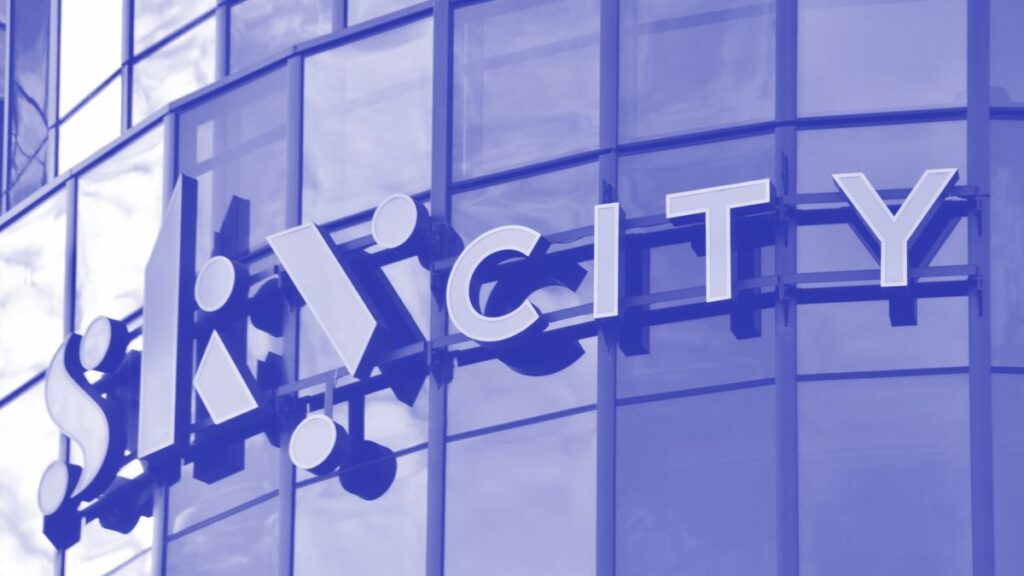
The news: SkyCity Entertainment will pay an additional casino duty of $13.1 million, after the South Australian High Court rejected an appeal by the casino operator regarding the treatment of loyalty points in its financial statement. The numbers: SkyCity shares were down 1.5% to $1.30 by 11:50pm AEDT, having dropped nearly 25% since January. As at 30 June, SkyCity had recognised a $13.1 million provision in relation to the potential exposure to the additional casino duty. The context: The new ruling by the High Court follows an appeal by SkyCity Adelaide of the Court of Appeal’s judgement on the interpretation of provisions in the Casino Duty Agreement between SkyCity Adelaide and the Treasurer of South Australia. The agreement relates to the treatment of loyalty points converted to gaming machine play for the purpose of calculating casino duty at the SkyCity Adelaide casino. SkyCity said the matter has been the subject of a longstanding contractual dispute concerning the interpretation of the agreement. The High Court has now confirmed the Court of Appeal’s interpretation of the agreement, finding that credits on gaming machines arising from the conversion of loyalty points, when played by customers, are to be included in gaming revenue for the purpose of calculating casino duty at the SkyCity Adelaide casino. The High Court has also ruled in favour of the Treasurer of South Australia in a cross appeal, regarding the interest clause in the agreement. However, the amount of interest payable on outstanding duty remains to be determined by a judge of the Supreme Court of South Australia “at a later date”. SkyCity said that if the Supreme Court’s decision is unfavourable to SkyCity Adelaide, the casino may face a penalty interest on the additional casino duty, which could be “up to around $25.3 million”. SkyCity said it has not recognised a provision in relation to the penalty interest as there remains a “range of potential outcomes and no present obligation exists”. What they said: “This is a long running matter involving highly technical tax issues regarding the calculation of casino duty,” SkyCity CEO Jason Walbridge said. “Given the complexities, both parties decided to seek declaratory relief through the court. “We look forward to the resolution of this matter and will continue to work with RevenueSA to achieve this.” Source link
Bally’s Chicago casino enters 2nd year on the rise — CDC Gaming
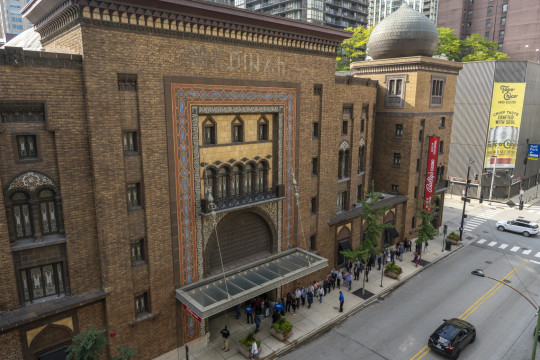
Tuesday, October 15, 2024 7:06 PM Image aggregated from Chicago Sun-Times. Mitchell Armentrout, Chicago Sun-Times Email, LinkedIn, and more The proprietors of Chicago’s first casino saw their luck change for the better as they closed out the first year of legal gambling within city limits. Story continues below Bally’s finally put to bed questions about financing their permanent $1.34 billion entertainment complex, remapped their site plan at Chicago Avenue and Halsted Street after old water pipes forced them back to the drawing board — and saw steadily increasing returns from their temporary operation in River North. But the money still isn’t flowing like city budget officials initially hoped, and in a new report released this month, state revenue forecasters say they have questions about how many more dollars can be squeezed from a crowded and ever-growing Illinois gambling market. Source link
Sanborn moves — again — for more time to sell casino over state’s objections • New Hampshire Bulletin
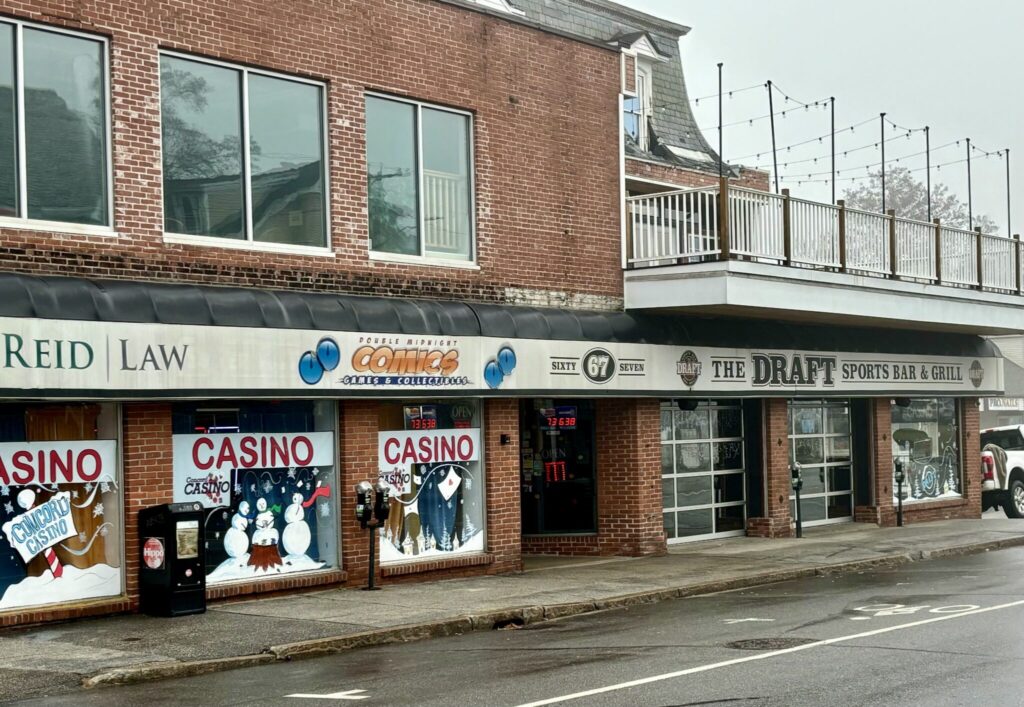
Hopes dashed that the state would clear the way for him to sell his casino by a Friday deadline, Andy Sanborn has moved to keep the clock running in hopes he can still close a deal. The state is objecting, arguing that Sanborn shouldn’t have gotten his latest extension in the first place. In a filing Friday, Senior Attorney General Jessica King argued the judge overseeing the fate of Sanborn’s license erred in giving Sanborn more time to sell after determining he didn’t have the authority to do so. The legal route he took to get there is “seemingly at odds with that determination,” King wrote. The latest issue in the state’s 13-month effort to revoke Sanborn’s gaming license over alleged pandemic aid fraud centers on the state’s “suitability” review of Sanborn’s unidentified buyer, a step Sanborn argues is taking longer than the state indicated. The New Hampshire Lottery Commission has told Sanborn’s buyer that it has completed its review and sent its findings to the Attorney General’s Office for its own review. That office has not said when it expects to issue a finding. If the state completes its background check and denies Sanborn’s buyer a gaming license, he won’t close a deal with Sanborn. Without a sale by the state’s deadline, Sanborn will lose his gaming license for Concord Casino — virtually the only reason to buy the business — for two years. Sanborn initially had to sell by June but was allowed a three-month extension to September if he had a buyer ready to close a deal. In September, Gregory Albert, the administrative law judge overseeing the fate of Sanborn’s license, essentially gave Sanborn a second extension with an argument the parties did not expect. Albert ordered Sanborn’s license revoked if he didn’t sell by Oct. 1 but halted his own order until at least mid-November, giving Sanborn at least another 50 days. Albert gave both parties until Friday to challenge his order. Both sides did. King of the Attorney General’s Office asked Albert to clarify his order, saying her office deemed Sanborn’s license revoked. Sanborn’s attorneys, Zachary Hafer and Adam Katz, requested a rehearing reluctantly, they said in filings Friday and Tuesday. They agreed with most of Albert’s orders, they said, but sought a rehearing on three issues, a move that keeps the clock running for Sanborn. They blamed the Attorney General’s Office for forcing their hand. “…Had the state credibly assured the buyer or (Sanborn) that the (Attorney General’s Office) would finish its (suitability) review by a date certain, (Sanborn) would have welcomed a chance to gracefully end this case,” they wrote. “But there is no clarity from the (Attorney General’s Office) and the clock is ticking.” It is unclear from Albert’s order how much longer Sanborn will have to sell now that the parties have requested to be heard again on his findings. A sale, they said in a separate filing, would benefit taxpayers by ending the litigation in the case, and charities that received thousands of dollars from charitable gaming at Concord Casino. Meanwhile, the Attorney General’s Office is pursuing a criminal investigation of Sanborn’s alleged misappropriation of nearly $844,000 in pandemic loans. His attorneys are suing the office in superior court arguing that the investigative team should be disqualified because members allegedly seized and reviewed documents during a search that were confidential. GET THE MORNING HEADLINES. SUBSCRIBE Source link

